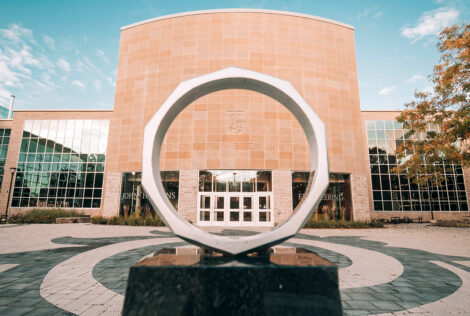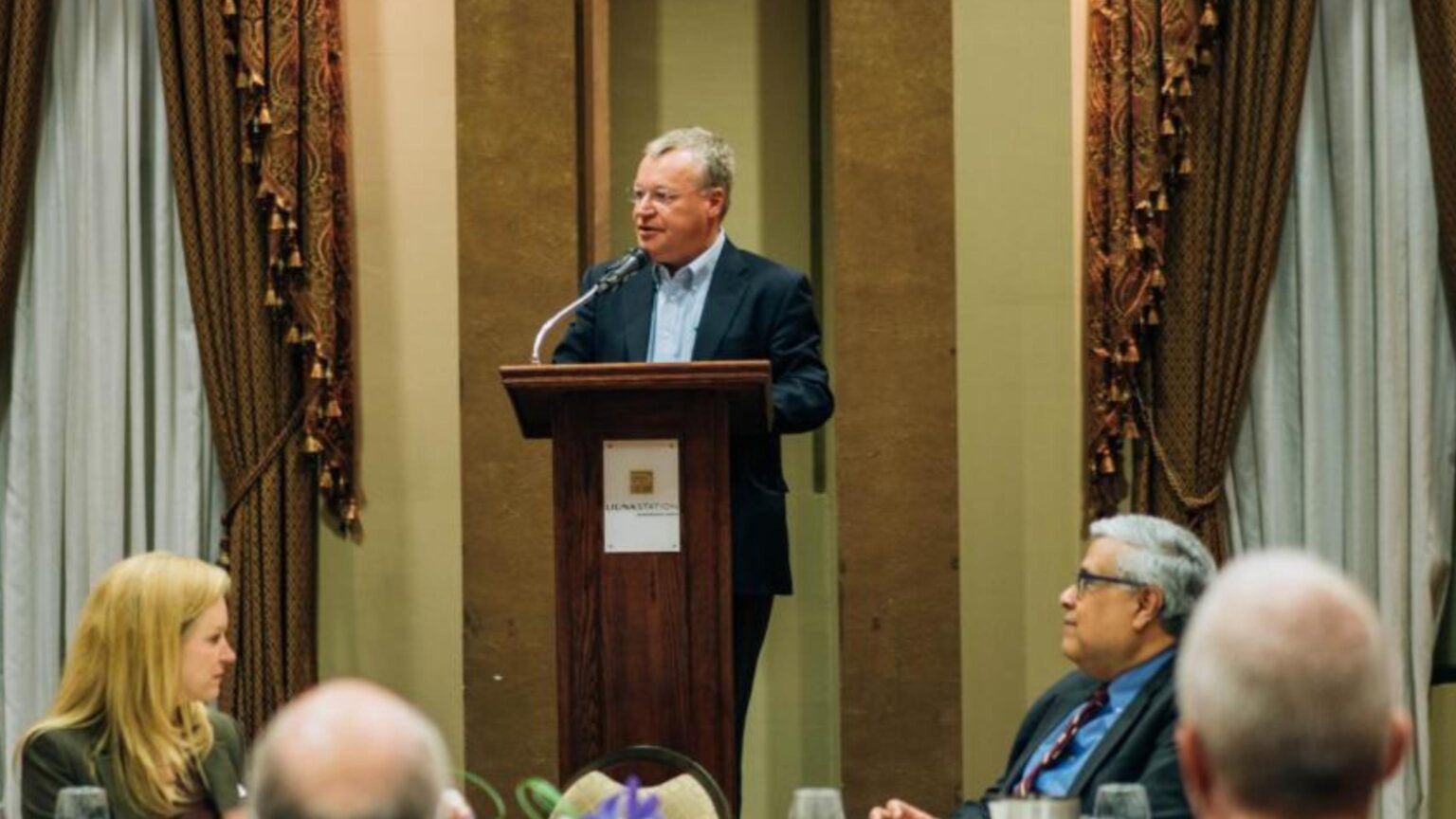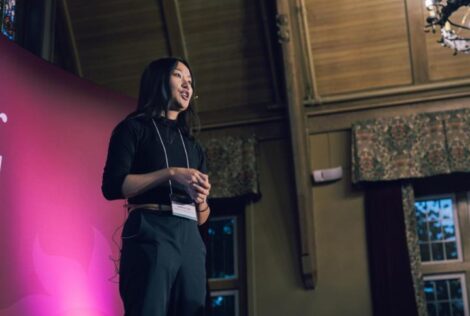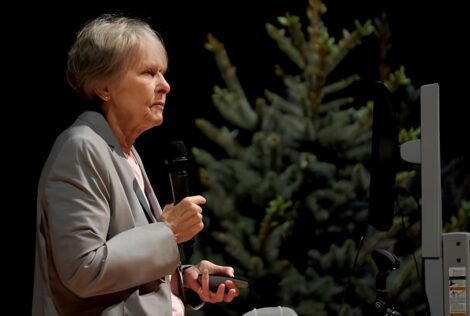

A walk across campus in the spring sunshine can bring memories of Stephen Elop’s university years at McMaster to the forefront.
“There’s an incredible sense of déjà vu,” he says. “It feels like it was just a few years ago that I was scurrying across campus on my way to exams.”
It was, in fact, 32 years ago that Elop earned his B. Eng in computer engineering and management as part of the class of 1986.
In the intervening years, he has gone on to become a tech sector superstar, and one of McMaster Engineering’s highest profile graduates.
He has held executive roles at some of the world’s most influential and recognizable technology companies – think Microsoft and Nokia – and marched his way to the top in an industry that has revolutionized our world in the three decades since he graduated.
In 2007, he was named the L.W. Shemilt Distinguished Engineering Alumni Award winner, and in 2009, was awarded an Honorary Doctor of Science degree by McMaster.
Most recently, he held an executive position with Telstra, Australia’s largest telecommunications provider.
But the Ancaster native traces his success back to the five years he spent at McMaster, where mentors opened doors, extended words of encouragement and offered the opportunities that influenced his future.
And that’s where he points when reflecting on his 2016 decision to accept the position of Distinguished Engineering Executive in Residence within McMaster’s Faculty of Engineering.
“It was rooted in the recognition of the positive impact that McMaster had on my life, my career and the successes I’ve enjoyed,” he says. “There is no question that it inspired me to step outside the normal course of study and pursue things that I would not have otherwise pursued.”
That’s a modest reference to his involvement in projects that went beyond the usual undergrad experience: spending a summer with Dr. Alan Smith to write a user operating manual for the campus’s new computer system; working with Dr. Gilles Patry to get the faculty into the business of financed PCs for incoming students; plotting a university-wide Ethernet with Dr. Art Heidebrecht.
While completing his degree, he estimates that he spent 30 to 40 hours a week helping faculty, doing private business on the side and being entrepreneurial.
Viewed through that lens of drive and determination, Elop’s career success is hardly a surprise. And when he sees that dedication in others, he wants to reward it with the pat on the shoulder that once meant so much to him – to “create a virtuous cycle” of encouragement, as he describes it.
“I’m always inspired when I see students taking that extra step, pushing beyond what is required for their degree and getting so much more out of their time at McMaster,” he says.
Elop’s appointment also offers a virtual pat on the shoulder to the university, as he steps up to champion the engineering program.
Through public lectures and participation in advisory groups, he will contribute to establishing a centre of excellence in engineering innovation and bring the tech world’s attention to Hamilton.
“It’s very clear that the Faculty of Engineering has been set on a course for greatness,” he says. “There is a clear set of objectives in place to bring McMaster into the upper echelon of engineering schools throughout the world and you can see the progress that’s been made.”


